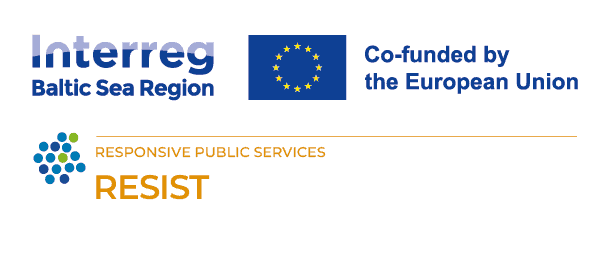
Discussion paper on AI for impact published
07 October 2025
Tobias Oertel from our RESIST partner zukunft zwei gmbh has written a discussion paper on the European opportunity space in the field of AI for impact (German abbreviation: GeKI – Gemeinwohlorientierte KI). The paper is written in German and explains GeKI and the special features of AI ecosystems and outlines the status quo of the European AI ecosystem.
What GeKI means
GeKI refers to artificial intelligence that is not primarily developed to maximise profits, but to solve social challenges, and is therefore transparent, inclusive and in dialogue with those affected. AI thus becomes an instrument for the common good. For GeKI ecosystems to work, more than algorithms are needed: it is about data, talent and computing power, i.e. the central resources for AI, as well as the right support structures and governance models.
Examples from the Baltic Sea region
In the Baltic Sea region, initiatives are already showing what the building blocks of a European GeKI ecosystem could look like:
- Sweden: AI Sweden is the national centre for applied AI. With over 160 partners from business, research, government and civil society, a strong ecosystem is being built here that makes AI specifically usable for societal challenges.
- Denmark: The Danish Centre for AI Innovation (DCAI) operates an AI supercomputer called Gefion. Funded through a public-private partnership, it gives innovators across sectors access to computing power – including for projects that serve the common good.
- Germany: Several federal ministries are combining initiatives to strengthen civil society in the field of AI through civic coding. Advice, platforms and funding are creating space for innovative projects in education, the environment and social participation. In addition, Hamburg is demonstrating with ARIC e.V. how AI skills can be coordinated and used responsibly at the city level.
Tools from the RESIST project
The transnational EU project RESIST provides concrete approaches on how such initiatives can be systematically strengthened:
- Mission-Oriented Innovation Policy (MOIP): Social challenges are formulated as missions (e.g. climate neutrality) in order to target funding and investment.
- Opening up existing innovation funding: Traditional cluster and innovation programmes should also include social innovations and civil society.
- Quadruple helix model: Politics, business, science and civil society work closely together to develop inclusive and participatory AI innovations.
Why this is important right now
Europe has the opportunity for a ‘Wikipedia moment’ in the AI age – a symbol of digital innovation that has a global impact but is geared towards the common good, democracy and sustainability. For this to succeed, targeted investment, inclusive governance and an adaptation of existing funding mechanisms are needed.
You can download the discussion paper here: https://zukunft-zwei.de/2025/09/europa-als-globaler-hotspot-fuer-gemeinwohlorientierte-ki-aufbau-eines-nachhaltigen-und-wirksamen-europaeischen-geki-oekosystems/





